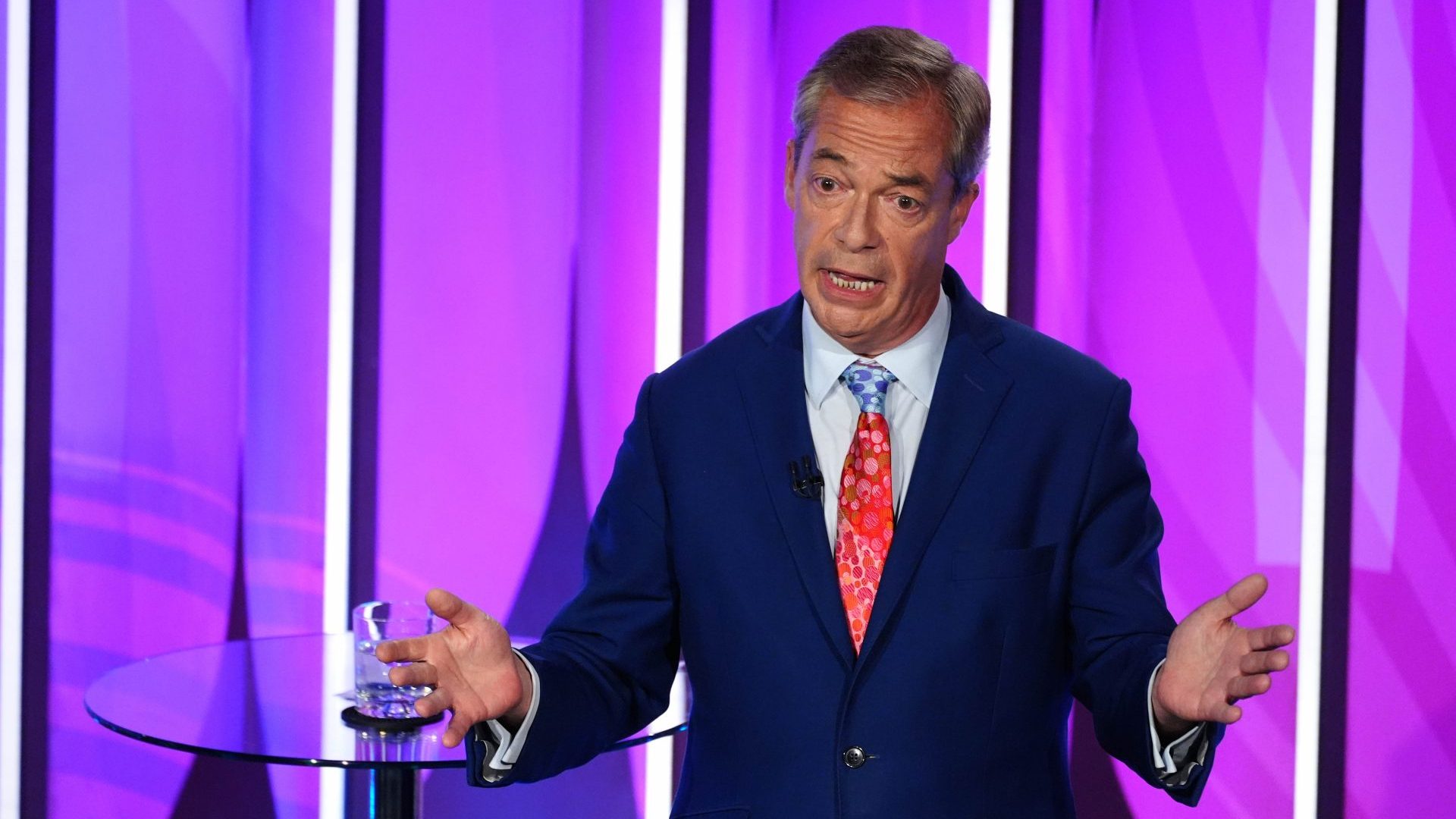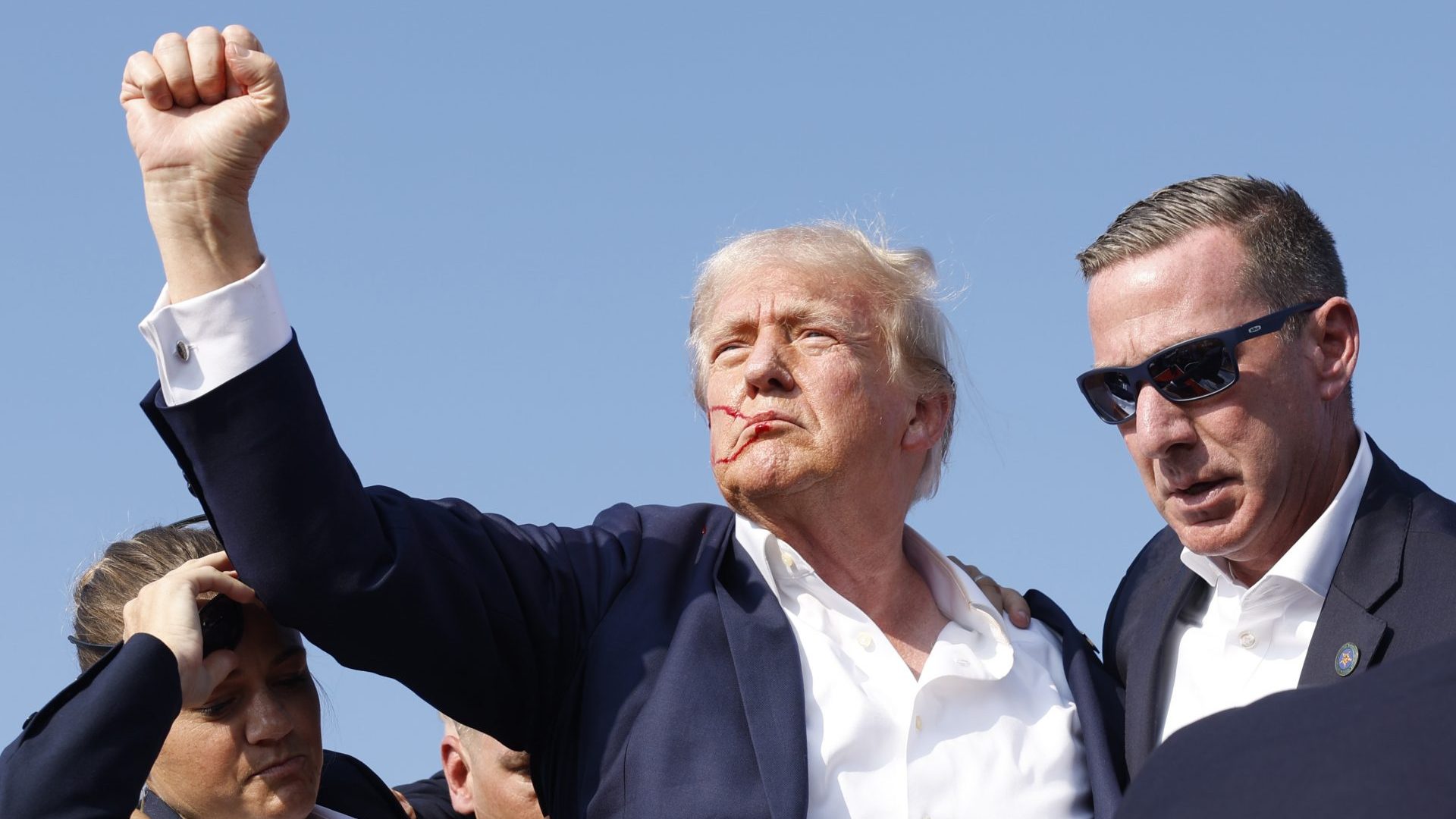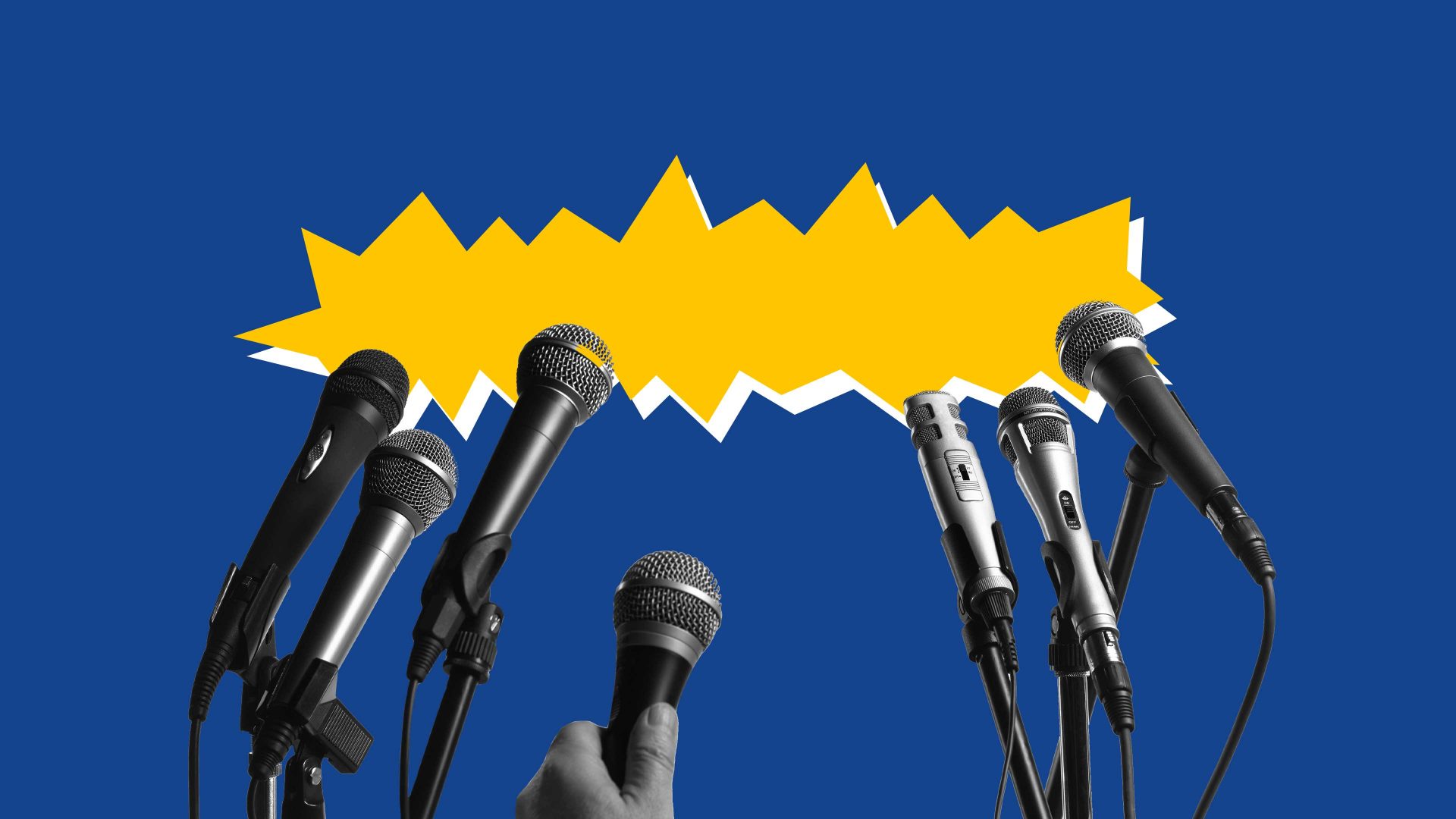Less than a month after Nigel Farage announced he was boycotting the BBC – accusing the broadcaster of bias over the questions audience members had put to him on Question Time – he relented and appeared as a last-minute guest on Laura Kuenssberg’s eponymous Sunday morning show.
Mandrake hears it was Farage who called the show’s producers – rather than the other way round – after he learned of the assassination attempt on Donald Trump. “We didn’t call him – why would we, when he had made it clear he was refusing to go on the BBC? – but he clearly wanted to get his narrative out about what happened,” whispers my contact on the show. “Given the time difference, negotiations took place into the early hours. All that mattered to him was that he got to talk about the assassination attempt and we were willing to accommodate that.”
Farage had not been trailed the previous day as a guest, and some rejigging was necessary to enable the Reform leader to go on about how a nasty liberal agenda had created an environment in which the shooting was inevitable, and to reference, too, his concerns for his own safety.
The show has been struggling to increase its audience share – it has never got anywhere near the two million viewers that Kuenssberg’s predecessor, Andrew Marr, averaged – and Farage is clearly seen as a ratings winner and a way of getting people talking about the show.
Farage began his boycott of the BBC after taking part in a leaders’ special Question Time during the election, a half-hour Q&A session with a live audience in which he was heavily criticised. One audience member called him a racist and another asked why his party attracted extremists.
He subsequently disclosed how he had been invited to appear on Kuenssberg’s show but had dug in his heels, saying he wouldn’t go on “the state broadcaster” until it apologised for subjecting him to a “dishonest” audience. A BBC spokesman refuted his claims of bias and no apology was forthcoming.
Giving TV commentary on election night, Lord Peter Mandelson looked jubilant as the extent of the Labour landslide became clear – and well he might. He was seen in some circles as a shoo-in to become Sir Keir Starmer’s pick as Britain’s next ambassador to the USA, payback for the counsel he has given to Starmer since he became Labour leader.
Mandrake hears, however, that Starmer – uncomfortably aware of the latest headlines about the Hinduja family, whose association with Mandelson precipitated his resignation as Northern Ireland secretary during Tony Blair’s period in office – is minded to give him instead the lesser bauble of the chancellorship of Oxford University.
“It’s awkward as Keir feels he owes Peter, but the last thing he wants is to get into the whole Hinduja scandal again when it was alleged Peter had helped the family patriarch, Srichand Hinduja, obtain British citizenship in return for cash for the Millennium Dome,” says my mole. “The recent court case in Switzerland, in which Prakash and Kamal Hinduja, as well as their son Ajay and his wife, Namrata, were found guilty of exploitation and illegal employment couldn’t have come at a worse time for Peter, even if they have said they are appealing.”
The chancellorship of Oxford – in succession to Lord Chris Patten, who held the role for 21 years – is not such a bad consolation prize. It’s a largely ceremonial role that has existed for centuries and has usually been held by a retired politician.
In 2015, Mandelson ran for the position of chancellor at Manchester University, but was beaten by the poet Lemn Sissay. The Oxford post is also chosen by alumni, but it is up to the government of the day to put forward a candidate.
Both Blair and Theresa May were mentioned a few months ago as possible Oxford chancellors, but Mandelson, who studied at Oxford, is now the frontrunner.
As for who will be Our Man in Washington, the former Labour minister David Miliband looks in pole position.
The journalists of the Washington Post, its owner, Jeff Bezos, and Sir William Lewis, its publisher and CEO, are now stuck in an unhappy stalemate.
An email Bezos sent to staff seemed cognisant of the allegations of wrongdoing being levelled against Lewis associated with his period working for Rupert Murdoch – which he has denied – but promised “the journalistic standards and ethics at the Post will not change.” There was, however, no ringing endorsement of Lewis nor any commitment to remove him from his post.
Investigations into Lewis by his own journalists are ongoing, with his business activities now the focus of attention. They’ve disclosed how the News Movement, a startup Lewis co-founded, was funded by a venture capital firm led by the billionaire Sheikh Sultan bin Jassim Al Thani, a former Qatar official. The firm has also invested in the right wing Newsmax channel.
That Rob Winnett, the Daily Telegraph executive Lewis recruited as editor of the Washington Post, should have now beaten a hasty retreat back to London after moving himself and his family to Washington suggests he believes there is more, and possibly worse, news to come out about Lewis, so his disgruntled journalists are essentially playing a waiting game.
One Washington Post staffer tells me: “What we are seeing in Washington and New York – where the Daily Mail’s online outpost is at the centre of its own storm – is the clash of cultures between American and British journalism. We look at your newspapers and we see a future we emphatically don’t want here.”
He says it can only be a matter of time before Lewis is removed, since “it’s clearly an untenable position when the relationship between a publisher and his journalists has descended to this level of toxicity.”
Although scarcely short of a few bob – an educational listings outfit he co-founded in his 20s called Hotcourses has proved to be a source of untold wealth for him – Jeremy Hunt has been quick to sign up with the speakers’ outfit Chartwell after leaving 11 Downing Street.
The former chancellor is promoted by Chartwell, possibly somewhat fancifully, as “one of the most high-profile and successful politicians in recent British history, having served in senior ministerial roles since 2010, under four prime ministers, including holding two of the four great offices of state. He brought a steady hand and pragmatic approach to fiscal policy…”
He is, so the agency insists, “exceptionally well placed to comment on the UK’s economic outlook and the likely scenarios under the Labour government.”
Hunt isn’t greedy when it comes to speaking engagements; he was paid a relatively modest £10,000 by Greenbrook Communications for taking part in a panel event not long ago, and he generally gives what he makes to charity.




